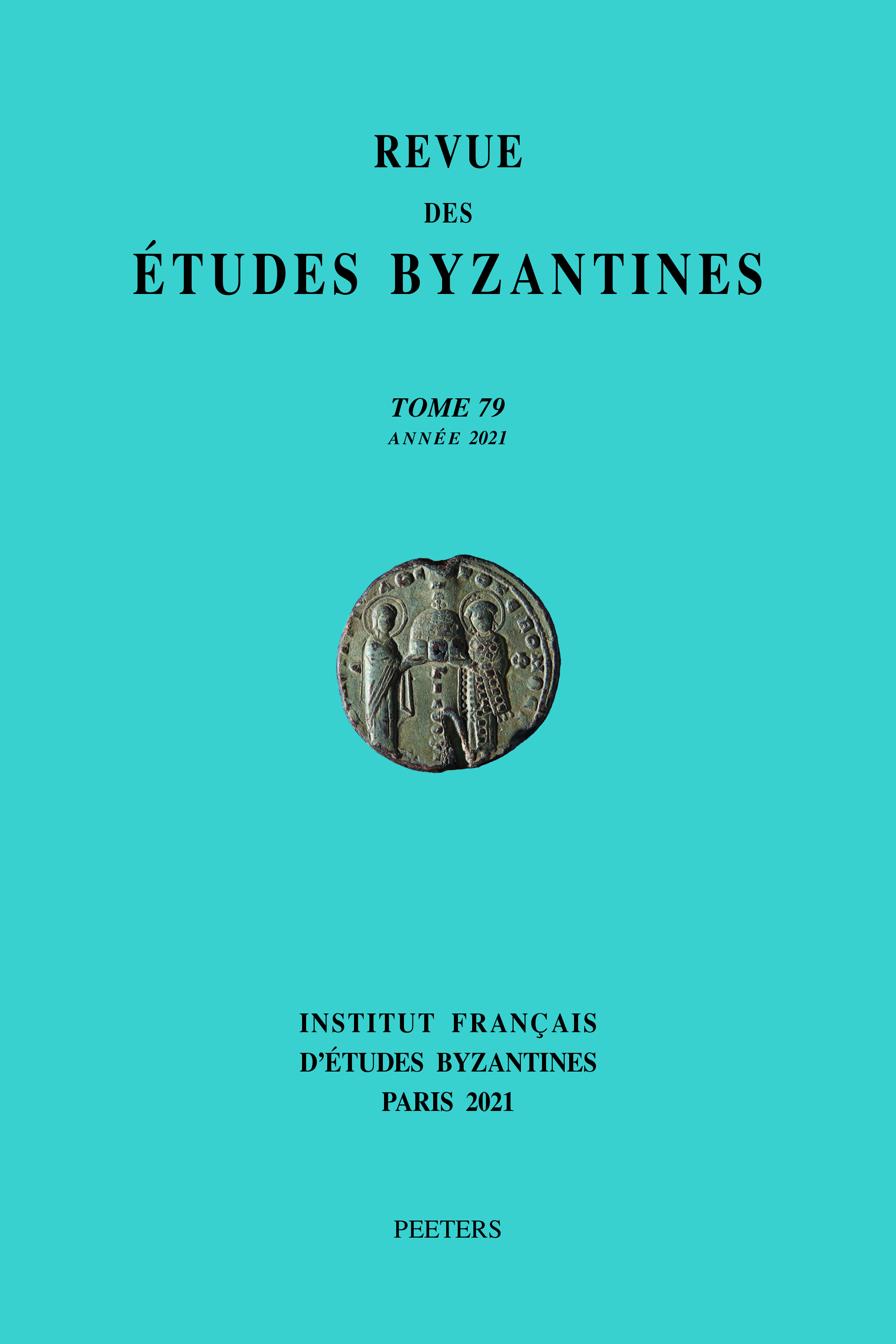 previous article in this issue previous article in this issue | next article in this issue  |

Preview first page |
Document Details : Title: The Enigma of Soteropolis Author(s): SEIBT, Werner Journal: Revue des Études Byzantines Volume: 75 Date: 2017 Pages: 321-327 DOI: 10.2143/REB.75.0.3251296 Abstract : Two villages or fortresses in the East were called Soteropolis. One was located in Chaldia on the Akampsis / Çoruh River (Burzo, near modern Borçka), and the other was found in Abchazia (Pityous). The former had been the center of the tourma τοῦ Ἀκαμψῆ καὶ τῇ Μουργούλῃ in the early 10th century, and around the middle of the same century, a kleisouriarches resided there. The Escorial Taktikon mentions a strategos in this (small) fortress. Later the town became the eastern border of the Empire of Trebizond. Pityous had been an important Christian center in the early 4th century. As Soteropolis, it was an archiepiscopate in the 10th century, and beginning in the 12th century, it was often attached to the metropolis of Alania. From circa 1033 until around 1074, the town belonged to the Byzantine strategia of Soteropolis and Anakopia. In early Byzantine times, Pythia in Bithynia was also sometimes called Soteropolis. Il existait en Orient deux villages ou forteresses appelés Sotèropolis, l’un en Chaldée sur l’Akampsis Çoruh (Burzo, près de la moderne Borçka), l’autre en Abkhazie (Pityous). Le premier était le centre de la tourma τοῦ Ἀκαμψῆ καὶ τῇ Μουργούλῃ au début du 10e siècle; au milieu du 10e siècle, un kleisouriarchès y résidait et le Taktikon de l’Escorial mentionne déjà un stratègos dans cette (petite) forteresse. Plus tard, ce fut la frontière orientale de l’empire de Trébizonde. Pityous était déjà un centre chrétien important au début du 4e siècle. Sous le nom de Sotèropolis, ce fut un archevêché au 10e siècle, souvent uni à la métropole d’Alania à partir du 12e siècle. D’environ 1033 jusqu’en 1074 environ, la ville appartint à la stratégia byzantine de Sotèropolis et Anakopia. À la haute époque byzantine, Pythia en Bithynie fut aussi parfois appelée Sotèropolis. |
|


